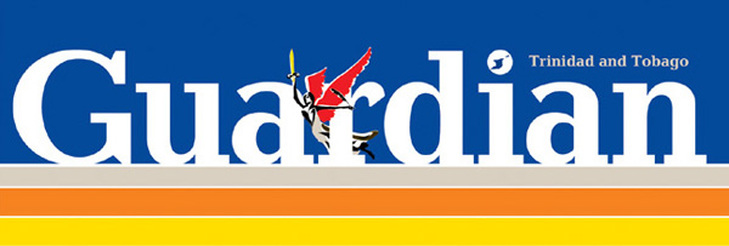It might be the misuse of funds, bribery, fraud, embezzlement, favouritism, nepotism or some other act the legal literature describes as, “the use of public (or private) power for private profits in a way that constitutes a breach of law or a deviation from the norms of society.”
In Lise Winer’s excellent ‘Dictionary of the English/Creole of Trinidad and Tobago’ the entry for bobol reads:
“Bobol, bubol, boboll, bubbul N Graft: corruption; fraud; embezzlement. [ˈbʌbɔːl] (south central Zoombo Kikongo lu-bubulu ‘corruption’; Kikongo bubula ‘become corrupt’; go rancid) (Northern Angola)”
Winer’s dictionary entry provides evidence of the word in use locally from as far back as 1907. From Atilla the Hun’s ‘Treasury Scandal’ and Sparrow’s ‘We Like it So’, to the comic strip Sweetbread and local newspaper headline writers, her entries show “bobol” as a word circulating widely in our talk across time and cultures.
While most of us are ethically opposed to corruption, to say bobol does not happen both for and against us, in everyday situations, to varying degrees, would not be supported by the evidence.
Of course this is in no way to condone corruption or bobol, which at its most extreme, say at the licensing office or with building codes, kills people and destroy lives, but it is to suggest that bobol is a vast continuum of activities. Its forms range widely, from massive fraud at CLICO and the Piarco Airport Saga, to also include everyday low levels of influence too.
This is not unique to T&T. In comparative terms the anthropological literature has many similar yet not identical terms to bobol such as Wasta in the Middle East, Quiza in China, Blat in the former Soviet Union, Protektzia in Israel and Natabad-Cryabad in Nepal, to name a small selection.
Wasta for example is part of everyday life in Jordan and has been described as a hidden force of Middle Eastern culture. It implies that due to the complex overlapping of various webs of social, familial, ethnic, tribal, and political and morality found within tribal culture, particular persons have the position or influence to get things done, such as mediate disputes and secure employment.
Protekzia in Israel is slang meaning to pull strings, and similarly to wasta, using networks of influence, but more specifically when dealing with bureaucracy. It has been described as something to be boasted about, a claim of legitimacy toward local culture and something hard for new immigrants to gain access to.
As such protekzia could be described as a local way of doing things that “makes people feel good” and that needs to be assimilated by new arrivals. The anthropologist Brenda Danet suggested protekzia humanised bureaucracy and in certain situations made it more efficient.
Running through these similar yet not identical terms to bobol a short list of characteristics emerge that include: a hidden force, contains elements of nepotism and pull, using personal networks of influence, gaining access to public resources and state system of privileges, conceals the exercise of power, is culturally legitimate, humanises bureaucracy, and improves efficiencies. Sounds familiar, right?
So what might we say or add about the emergence of bobol in the Caribbean?
The anti-colonialist Franz Fanon said that colonialism and imperialism were criminological enterprises. Biko Agozino too said the “primitive accumulation” of colonialism and capitalism undertaken by the powerful was a criminal practice.
While the counter-Enlightenment political philosopher Jean-Jacques Rousseau believed that individuals become what their Governments make them. Or put another way, corrupt governments, make corruption more normalized.
If we follow, Fanon, Agozino and Rousseau, we might venture that bobol begins in Trinidad as a colonial enterprise and practice of elites, that is then embedded in the colonial state and becomes in the move to post-colonialism a part of the emergent post-colonial state. Which of course gave birth to the system we have today – more bobol under the neo-colonial state.
Bobol also becomes a more general practice of many others in the society too; a way of getting business done in a demographically small place where many know each other, with all the dangers that corruption can pose for all members of a society.
None of this is an excuse, but it does suggest the abuse of power today is still a lot like it was yesterday and that bobol is embedded not just politically but culturally in Caribbean life.
http://www.guardian.co.tt/columnist/2014-07-06/bobol-then-and-now

 RSS Feed
RSS Feed